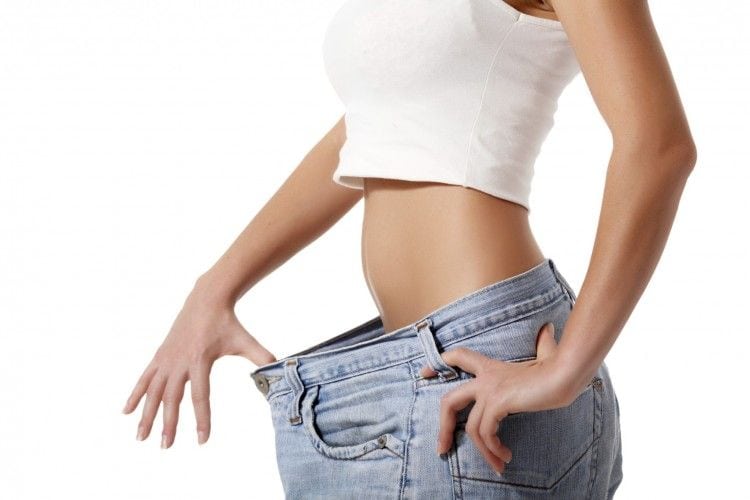Fat is energy. It’s the extra stuff you ate, and haven’t used yet. To our ancestors, who lived with an unreliable food supply, fat was friendly stuff. A woman with rounded hips and a nice mound of belly looked like the best thing walking to your many-times great grandpa. She looked like a mother who could feed his babies even on the rough days when he wasn’t bringing home the mastadon.
A round woman advertised her man as good at his job, admirable and desirable. A round woman also meant a man could relax a little, because his partner had the basics for the kids covered. This was such a good system for everyone, it has persisted in our bodies to this day. We are the end result of a long line of excellent fat storers.
Now that most of us have a guaranteed over-supply of calories, most of us (65% of Americans) are over-fat. Not just nicely round. Too many of us are too fat, and all of us are suffering from it. We suffer personally from the limitations forced on us by obesity or we are suffering collectively the impact of obesity-related chronic disease on the health care system. That’s the bad news. The good news is that now that obesity is an epidemic, it is also “interesting” enough (that is, there is money in it for researchers and product manufacturers) so that we are getting new and useful information about how to lose excess fat, and keep it gone, forever.
How to lose excess fat
Remember, you can only lose fat by reducing your calories from food to less than the amount of calories you use in your daily activities. There are any number of additional details that make this strategy more or less likely to succeed, especially over time. Like, exercise. Exercise. Exercise. And, there are important vitamins and minerals that are essential to health and are usually missing from the sort of diet that ends you up fat.
There are also nutritional supplements and herb products that can help along the way. I’ll talk about a number of these in a future post. None are a substitute for the nitty-gritty truth- there’s a way you eat to get fat and a way you eat to lose fat, and a third, distinctly different way you eat, and move and behave in general, to keep the fat gone, forever.
One crucial aspect of successful fat loss has to do with how you feel when you reduce your calories. If you just eat less, without regard to exactly what you are eating—that is, the fat, protein and carbohydrate content, as well as the vitamins, minerals you need – you will have a pretty unpleasant experience.
Everyone who has even tried a low calorie diet knows this experience – nagging hunger, jittery fatigue, headaches, muscle spasms, mental fogginess, emotional depression or irritability and insomnia. If you aren’t exercising, in part because you feel so lousy, you can also find yourself losing weight that includes your muscle mass, and not just the fat you intended to lose.
We know how to prevent that motivation squashing experience and lose fat forever. It used to be controversial, but thanks to a healthy body of research comparing types of diets, it is clear. Dr. Atkins was right. Michael and Mary Dan Eades, authors of Protein Power, and Barry Sears who wrote The Zone, and all the other sugar-busting, low-carb champions have it right. There is no question.
A lower carbohydrate diet, in which you reduce your calories from carbohydrates in particular and nourish yourself with appropriate amounts of water, fruit, vegetables, eggs, poultry, fish, meat, nuts and good quality oils, creates fat loss without the usual unpleasant side effects. This way of eating also helps identify problem foods, the allergies and intolerances that create all the aches and pains, the swellings and congestions, moods swings and foggy thinking that you suffer from. When you are ready to switch from a lower carb fat loss diet to a healthy weight maintenance way of eating, you can use what you’ve learned to stay free of those old symptoms.
A lower carbohydrate diet feeds you good quality carbs from fresh vegetables, fruits nuts and seeds. You eliminate starchy carbohydrates from grains, and all simple sugars. Those ancestors of your lived thousands and thousands of years with nothing sweeter than mother’s milk, occasional feasts of honey and ripe fruits. They ate almost no grains at all. Their experience of grains as food was limited to those few weeks of the year when the seeds heads on the grasses were ripe. They’d pluck what was there, share it around the group, and chew chew chew those nuggets, raw.
That’s a real different chemical experience compared to what happens in your body when you eat a bagel, or a croissant or a cookie! We do not need to eat large amounts of grains to be healthy. In fact it’s clear that our passion for pasta and bread and all things sweet, is the reason so many of us are chronically ill. When you are over-fat and you want to lose it, you have to let go of simple sugars and the grains that turn into sugar in your blood so quickly.
After you have lost your extra fat, you can resume eating healthy fresh whole grains, in amounts that are right for your muscle mass and your metabolism, without regaining weight. But first you have to go through what I call a ‘therapeutic interval’, a time when you are ‘in treatment’ to reverse a process where you have gone too far in the wrong direction. Next time I’ll write more about what is required to be in this treatment phase.
Have you finally gotten down to your ideal weight and accomplished your weight loss goals? What plans have you made to stay that way? In order to avoid putting all those pounds back on, what about continuing on with some fitness training in your daily routine. You could also start building up some muscles. Speaking of muscles, check out how John Cena has built his physique. We’ve done our research so we can share everything we know about (as we like to call them) John Cena Supplements.





